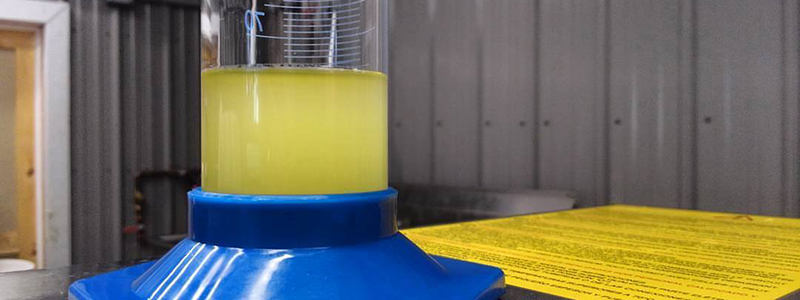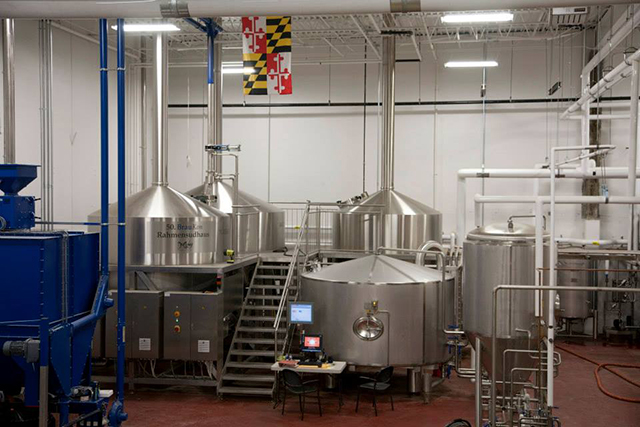
BREWER: What are some key SOPs to develop when it comes to maintaining your back end? Is there someone on your staff that has this as their main responsibility or is the work dependant on the members as a whole?
DRESSLER: Key SOPs to develop include a proper cleaning and sanitation program for your equipment. So many off aromas and flavors can be prevented by using proper sanitation. If you can stop the spoilage microorganisms from getting into your cider in the first place, you’ve already won a big battle that doesn’t need to be fought. Preventative maintenance is also key to maintaining working equipment. Nothing can be more frustrating than having a pump go down on you on a bottling or filtration run.
DRESSLER: One of the best things you can do in terms of preventative maintenance is to pay attention. Almost everything you use should be cleaned, rinsed and sanitized during every use. When you’re scrubbing a tank, pay attention to the area you are scrubbing. Is the stainless steel pitted or scratched? Proper cleaning means most fittings need to be broken down. Look at the gaskets, o-rings and rubber when you put it back together. Is your rubber aging, cracking or breaking down? Building little but constant checks into your rhythm can go a long way towards preventing big problems later.
BREWER: What “little things” do you do now that perhaps you didn’t do before, but they have been a great plus for you in developing a quality program?
DRESSLER: When you’ve put a long day in at your production space, sometimes you don’t have it in you to fully clean and put away all your equipment. At least just give it a rinse down and get the cider off it. Dried cider can be awful to scrub off, just take the extra five minutes to spray and rinse your equipment off, and you’ll have the freedom to properly clean it the next day. Rinsing it off also denies any microorganisms food. Don’t give a feast to your enemy!





Be the first to comment